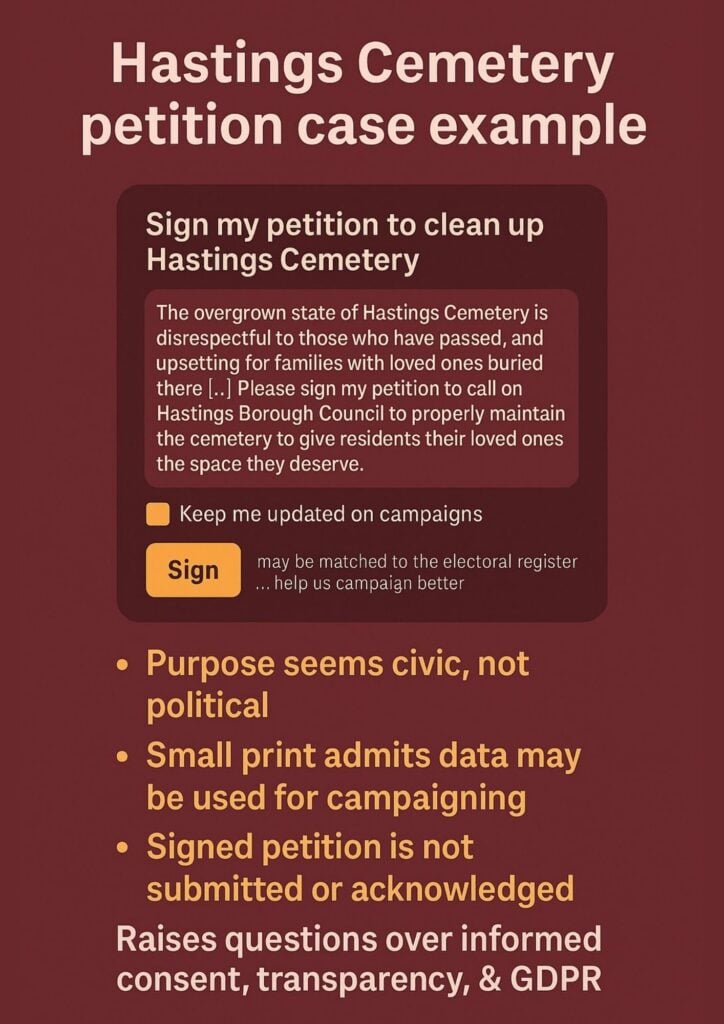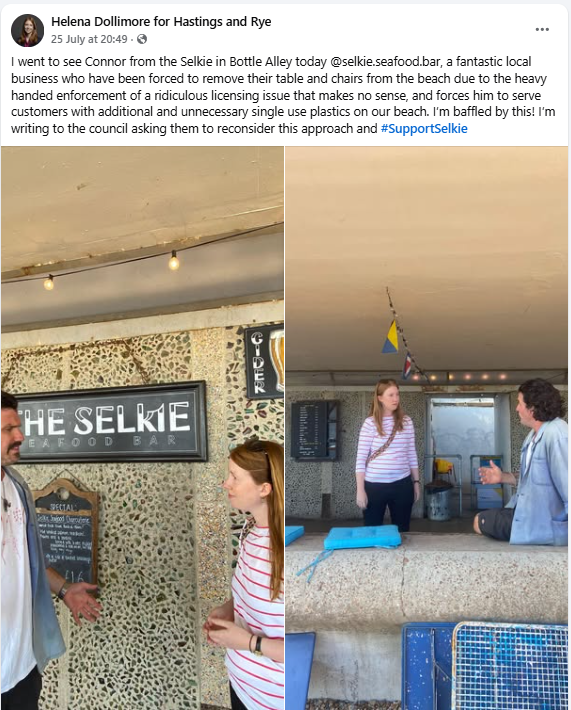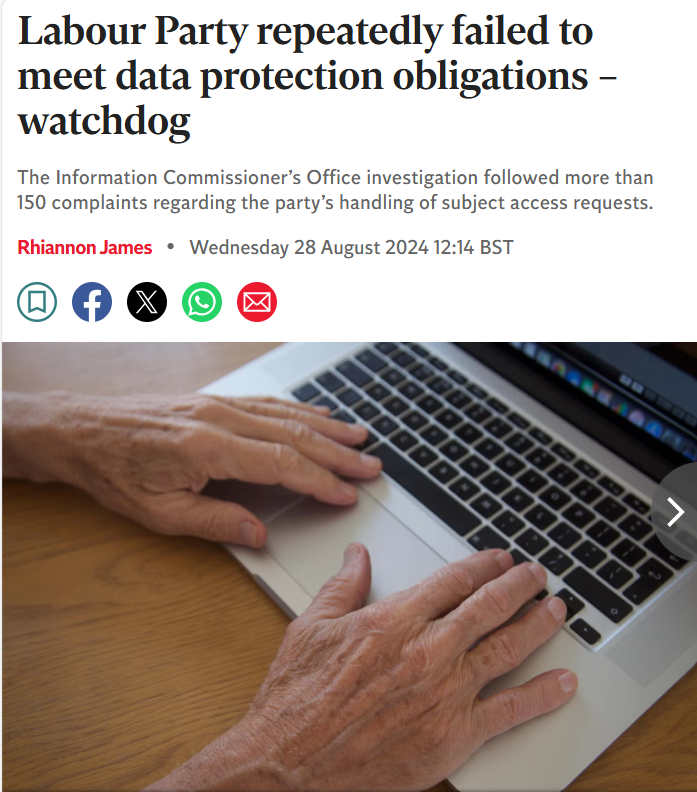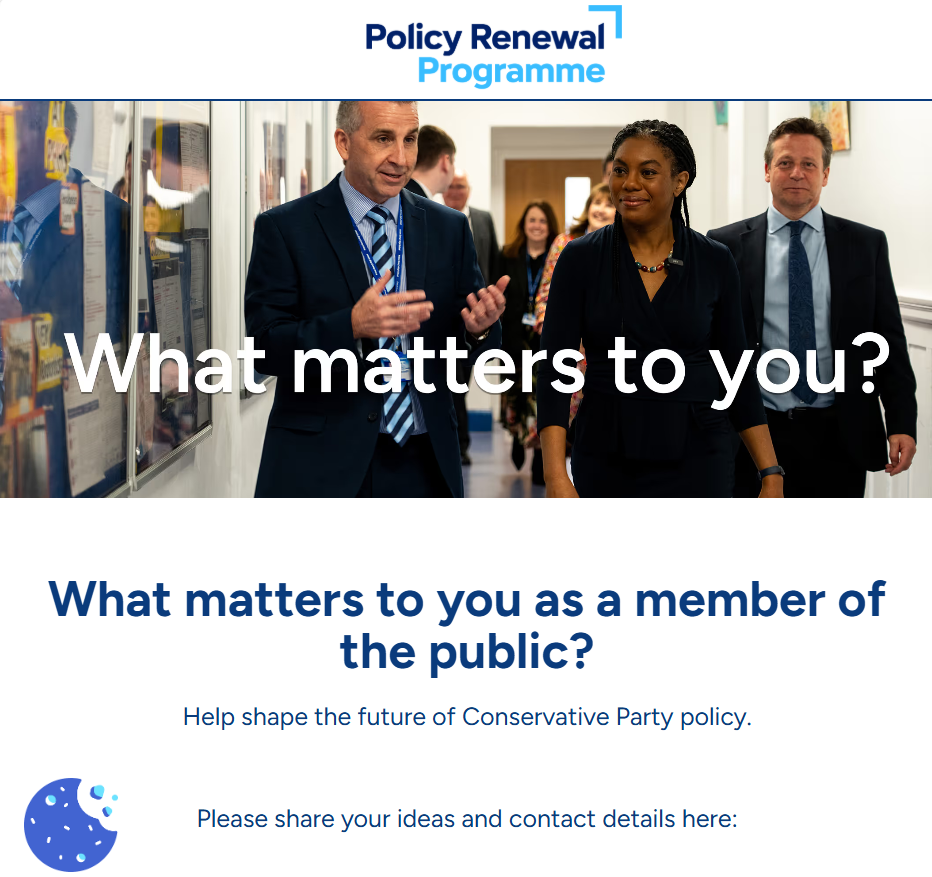What Helena Dollimore’s campaign tactics reveal about data, distraction and decision making
In the last couple of years, Helena Dollimore MP has launched a string of local petitions. These include playground campaigns, water outages, fire service cutbacks, council roadworks, and most recently, a dispute over café seating near Bottle Alley.

Each one follows the same format. A form is shared on her political website. Personal details are requested. A campaign is launched. But what happens next is rarely clear. Are these petitions ever submitted? Are results published? Or are they just used to build contact lists?
This article looks at the pattern. It asks what these petitions are really for. And it questions whether they are giving power to the public, or just gathering data for political use.
Sign your name, give your data
Every petition on Helena Dollimore’s website asks for your name, email address, postcode and phone number. Each one includes a small-print note that your data may be matched to the electoral register and used to inform future communications.
There is no option to sign the petition anonymously. There is no way to support the issue without handing over your personal details. And crucially, there is no system for sharing the results. Many petitions seem to go nowhere once they are launched.

The campaign becomes the message. The sign-up becomes the goal.
The Selkie case exposed this clearly
When a local beach café came into conflict with the council, Helena Dollimore chose not to meet the council leader. She chose not to engage with the trust that manages the seafront land. Instead, she launched a new petition with little legal context and no coordination with local decision makers.

The result was a spike in public anger, without any resolution. What should have been a discussion turned into a headline moment. A local matter was used to generate pressure without process.
Failing to meet, and instead turning to public outrage and online petitions, only highlights their political naivety and lack of understanding of how legal responsibility works in practice.
Responsible leadership should mean bridge building, not outrage chasing.
A pattern of distraction
This is not the first time Helena Dollimore has appeared at the scene of a local issue with a headline and a camera crew.
Again and again, we see her step into issues that are meant to be dealt with by local councillors. Why? Because those councillors will not challenge Labour’s inner circle or the centralised control of the national party. The result is that MPs like Helena take on the role of community fixer. Not to shift power, but to create the illusion of action.
This behaviour is not new
Between 2017 and 2019, the Labour Party was formally warned by the Information Commissioner for using issue-based petitions to collect voter data. People thought they were signing up to support schools, hospitals and services. In reality, they were added to political databases and targeted for follow-up. Even last year the party was warned by the Information Commissioner over not responding to Subject Access Requests, and a data breach following a cyber attack.

The Selkie petition and others appear to repeat this model. A public issue is raised. A form is created. Supporters are invited to sign. But little is done to show where that information goes, who sees it, or whether their voice is used in decision making.
Not just Labour
Other parties have used similar tactics. Some Conservative MPs run “Tell us what matters” surveys. Some Liberal Democrat councillors use petitions to gather ward-level contact data. But too often, these actions lack proper transparency. Civic issues are used as entry points for party contact, not for serious policy change.

This is why we need stronger standards and honest communication.
The Green way is different
The Green Party believes people should be able to support a campaign without being automatically added to a mailing list. That is why all our petitions include a clear opt-in. They explain how data will be used. They never match personal details to electoral records without explicit permission.
We also believe petitions should be submitted, not stored. Outcomes should be published. Residents should be invited into the process, not turned into a file of contact details.
An FOI request is now live
A Freedom of Information request has now been submitted to Helena Dollimore’s parliamentary office and a response is due by the 22nd August 2025.

It asks:
- How many people signed each of her 15 petitions
- Whether they were submitted to decision makers
- What happened as a result
- How the data was stored
- Whether signatories were contacted for political reasons
When a response is received, it will be published in full. If no clear answer is given, that will also be shared publicly.
What we are asking for
We believe three things must change:
- Politicians must be transparent about how petition data is used
- Petition outcomes must be shared with the public
- Local issues must not be used to harvest data without consent
Hastings and Rye residents care deeply about their town. They want a better future. They deserve politics that respects their voice, not platforms that quietly collect their details.
📩 For information or to add your support, email chair@hastings.greenparty.org.uk
Let us build politics based on accountability, not algorithms.